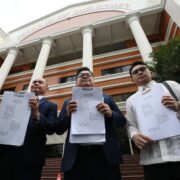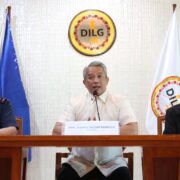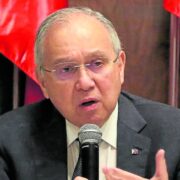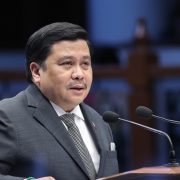Jumpstarting economy through private sector

The recent multibillion-peso corruption scandal involving flood control projects is taking its toll on the Philippine economy. In the third quarter of 2025, the country’s gross domestic product (GDP) grew by only 4 percent, the lowest since the height of the COVID-19 pandemic.
This brings the country’s average GDP growth to 5.0 percent for the first three quarters, well below the adjusted government target range of 5.5 percent to 6.5 percent. The GDP would have to grow by 7 percent or more in the fourth quarter to achieve the lower end of this target. Quite a challenging task.
The sluggish economic growth was driven by the 26-percent contraction in government construction. In the third quarter of this year, infrastructure spending fell by 31 percent as public works projects nationwide are being reviewed thoroughly for irregularities.
Government infrastructure spending is likely to fall further as more projects will be investigated in the next few months. This could drag down the country’s growth possibly up to the first half of 2026.
In response, the Department of Budget and Management programmed P1.31 trillion for disbursement in the fourth quarter to boost economic growth. However, given the poor capacity of government agencies including the Department of Public Works and Highways to implement projects, this will probably fall short. For instance, as of October 2025, the DPWH only completed 22 classrooms out of its target of 1,700.
Infrastructure development is crucial to the country’s growth. For 2026, it is projected to reach P1.6 trillion, equivalent to 5.1 percent of the country’s GDP. Hence, the Philippines cannot afford to put its infrastructure drive on hold—it remains as the country’s Achilles’ heel.
The government must encourage the private sector to participate more actively in infrastructure development not only for transport projects, but also for classrooms, rural health facilities, and agricultural postharvest facilities.
But this will not be easy. The recent corruption scandal has badly damaged public confidence in government, and the political and economic outlook over the next few months remains uncertain. Private firms would be hesitant to do business with the government under these conditions. So how then can we encourage the private sector to take part?
First is rebuilding trust. The administration must show that it is serious in cleaning up its ranks. That means holding corrupt officials accountable, ensuring cases move quickly, and strengthening transparency in the budget process.
Next is to address bottlenecks in public-private partnerships. Despite the passage of the PPP Code, challenges remain. According to the Asian Development Bank, these include low absorptive capacity of implementing agencies, delays at the local level due to permits and real property tax issues, right-of-way acquisition, and political interference in rate setting and adjustment. Funding for the payment of ROW should remain in the national budget to avoid delays.
These issues could be addressed by the Private Sector Advisory Council on Infrastructure and Regional Development Councils. Both should regularly convene and communicate the results of their discussion in improving the PPP process. This will help integrate private sector insights into national and regional planning.
While infrastructure development is primarily the responsibility of the government under normal circumstances, today’s situation is different. The government’s fiscal space is under strain, additional borrowing is unsustainable, and governance and systemic issues within DPWH are still being resolved.
Greater private sector involvement could help ease some of these pressures. This could free up some funds that can be rechanneled to health and education. It would support the goal of keeping our fiscal house in order by bringing down the country’s deficit to GDP ratio to 3 percent and debt-to-GDP ratio below 60 percent.
The private sector has better technology and technical expertise to deliver quality projects. Some private firms, particularly conglomerates and publicly listed companies, also tend to uphold higher standards of governance and are sensitive to reputational risks.
The government can further boost growth by attracting firms to invest in the country, particularly in economic zones. Ecozones such as those under the Philippine Economic Zone Authority are well managed and insulated from red tape. These ecozones provide certainty and stability for investors in this current environment.
In recent years, Congress passed key reforms such as the CREATE MORE law, mining fiscal regime, Ease of Paying Taxes, and liberalization laws to open key sectors to foreign participation. But the challenge is always in execution. What is good on paper must be reflected in actual implementation.
In light of the corruption scandal that has undermined public trust, the government must be proactive in creating an environment conducive to private sector participation in the economy. The government needs the private sector now more than ever.
—————-
Gary B. Teves is a Filipino politician and public servant who served as secretary of the Department of Finance.

















